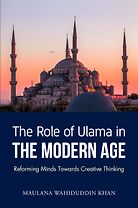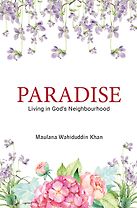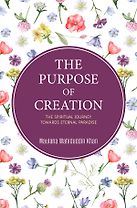Taqwiatul Iman by Maulana Shah Abul Hasan Zayd Faruqi, pp. 86-87)
In Islam, decisions about collective affairs are based on mutual consultation, or shura (The Quran 42:38). Such consultation leads to
Popular search:
Search Results 9917 results


once again, based on deviation from the right path. It was based on atheistic ideologies. In the Islamic period, God was the centre of human thought, shaping human activities. However, in the new age, Nature

earth, which has been made ready for those who believe in God and His messengers.”
According to the Islamic tradition, the earth was in charge of the Jinns in its beginning. Then it was handed over to human

Akhirat-oriented planning, while living in this world.
Abu Hurairah narrates that the Prophet of Islam observed: “One who is concerned, starts his journey very early in the morning while it is dark and

movement to purify the Kabah of the 360 idols installed in it. But, by pursuing such a course, the Islamic movement at that juncture would certainly have had to face a violent reaction from the Quraysh. An

conflict with the rulers in matters of their power. Even if you find them going against express Islamic injunctions, you should attempt to make the truth clear to them

dates is recorded in the books of Hadith. The Prophet of Islam observed that in worldly matters such as these, “you should act according to your experience, as you know these matters better.” (Sahih Muslim

the status quo. Instead, he issued a charter which is known as Sahifa-al-Madinah in the history of Islam. In this situation he adopted almost the same kind of policy as that known as non-interference in

and this opened the door for a “clear victory” in the words of the Quran (48:24). The principle of Islamic activism has been briefly alluded to in the Quran:
Therefore bear up patiently as did the steadfast

Akhirat-oriented planning, while living in this world.
Abu Hurairah narrates that the Prophet of Islam observed: “One who is concerned, starts his journey very early in the morning while it is dark and
Displaying items 5231-5240 of 9917 in total